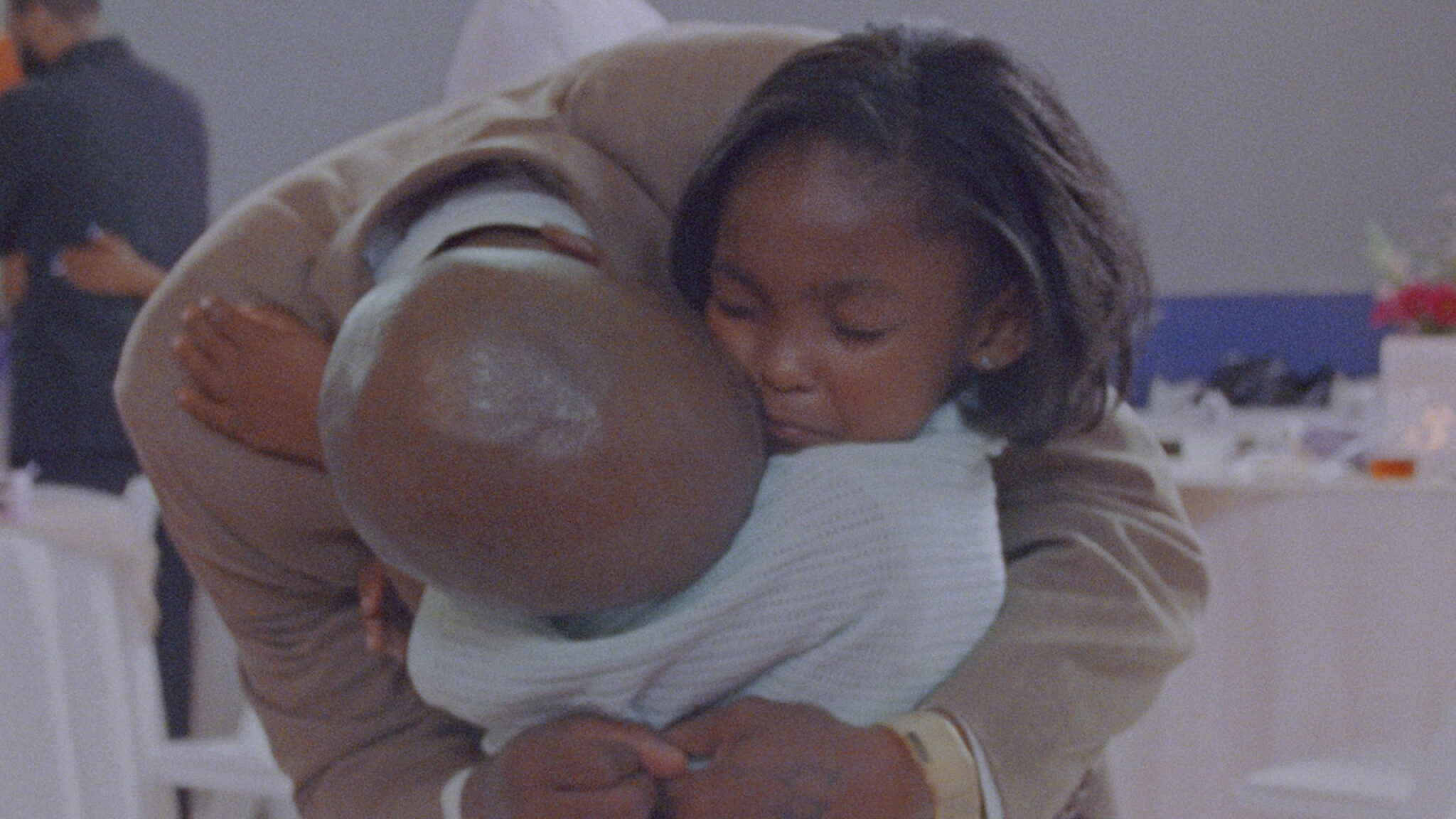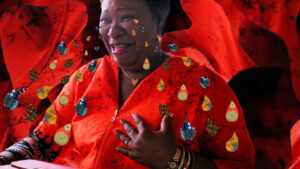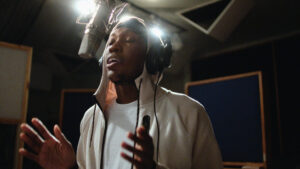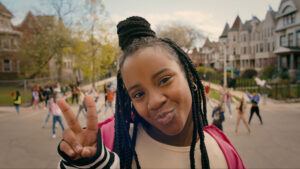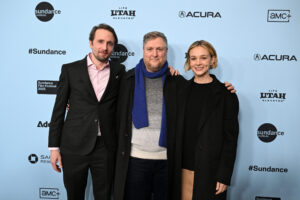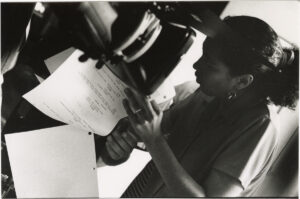By Lucy Spicer
One of the most exciting things about the Sundance Film Festival is having a front-row seat for the bright future of independent filmmaking. While we can learn a lot about the filmmakers from the 2024 Sundance Film Festival through the art that these storytellers share with us, there’s always more we can learn about them as people. This year, we decided to get to the bottom of those artistic wells with our ongoing series: Give Me the Backstory!
In 2012, activist Angela Patton gave a TED Talk titled A Father-Daughter Dance in Prison. Over a decade later, Patton and co-director Natalie Rae would take home the 2024 Sundance Film Festival’s U.S. Documentary Audience Award and the Festival Favorite Award for their film Daughters. “When I heard Angela’s TED Talk, I was immediately moved by her words, her conviction, and the way she told the story,” says Rae. “Empowering women shouldn’t be about telling girls to be something more — it should be about making space for exactly who they are. Her TED Talk encapsulated this for me, and I knew this was a story I needed to tell in the documentary film format.”
Daughters is a remarkable foray into filmmaking for Patton, who advocates for “at-promise” Black girls in her work as CEO of Girls For A Change. “What excites me most about documentary filmmaking is its power to connect with the audience and inspire meaningful action,” says Patton. “This venture aligns perfectly with my mission to amplify the voices of Black girls on a broader scale, marking it as one of the most pivotal decisions in both my organization’s journey and my personal leadership path.”
The documentary, whose production was an eight-year process, follows four girls as they prepare for a Daddy Daughter Dance with their fathers, who are serving time in a Washington, D.C., jail. Patton and Rae’s vérité approach faithfully captures the complexity of the girls’ emotions while emphasizing the importance of maintaining family relationships. “My vision is crystal clear,” says Patton. “I want viewers to witness the incredible potential in young voices and understand the unique challenges Black girls often face — being silenced, invisible, and misunderstood. I aim to transform how they are perceived, heard, and celebrated.”
Learn more about Patton and Rae below, including the feelings they hope to inspire with Daughters and why the medium of filmmaking is so important to them.
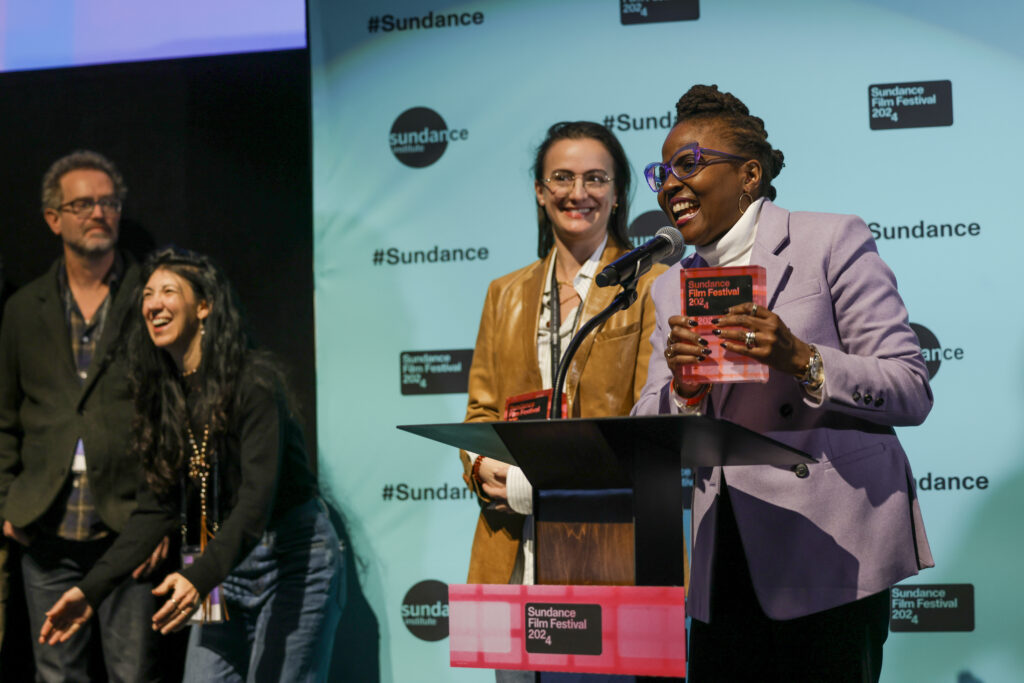
Describe who you want this film to reach.
Patton: “This film is not tailored for any specific group; it’s a universal love story meant to resonate with all of us. Our shared experiences within families, regardless of our backgrounds, create a bridge of connection between us. That said, I envision this film as a wake-up call for politicians and change-makers, urging them to address the pressing need to reduce recidivism and reform our criminal justice system. To change policies, challenge biases, and consider transformative programs like the dance, which has the potential to reconnect families and positively impact the lives of incarcerated individuals.”
Rae: “I hope that daughters and fathers who are dealing with similar experiences feel seen and can even take some solace from this. I hope that girls who are dealing with these same challenges see the strength and resilience of Aubrey, Santana, Raziah, and Ja’Ana, and it helps reduce the shame they feel because of the stigma around incarceration. I hope it opens up a safe space to have the uncomfortable conversations we show in the film.”
Why does this story need to be told now?
Patton: “Telling this story now is crucial because it aligns with current societal movements and challenges, highlighting the importance of empowerment, justice reform, empathy, and youth engagement.
It offers a timely perspective that can drive positive change in our communities and beyond. This narrative is overdue and distinct from the usual prison stories we hear. While prisons are often viewed as places of punishment, we must also explore the experiences of those caught in the prison pipeline. It’s easy to overlook how the system impacts everyone in that pipeline. When one family member is incarcerated, the entire family becomes imprisoned — victims of the system.”
Rae: “The millions of U.S. children bearing the weight of mass incarceration in their childhoods is an unbearable and unfair disadvantage to this generation. Shining a light on visitation rights and the dance program can create change within these children’s lifetimes. Every day, every year, every visit makes a difference. This is an issue that everyone should know about, as it affects all of society because it affects our children, who grow up with stigma and trauma.
On top of that, looking at the father-daughter relationship as a universal place to propel gender equality could also have an impact. The intersection of these two things and the nuanced conversations that are finally happening at a broader scale in the world makes it the perfect time for this film to come out and bring people into the human emotional experience within these conversations.”
How do you want people to feel after they see your film?
Patton: “In addition to wanting viewers to feel deeply moved and inspired to take action, I aim for them to experience empathy, empowerment, and a renewed commitment to challenging the stigma. Ultimately, the film celebrates the enduring power of love in the face of adversity, serving as a poignant reminder of the universal need for connection that resonates with us all.”
Rae: “I want them to connect to their own family trauma and feel inspired to reach out to loved ones. I want them to feel the power of the father-daughter dance, but also the pain of having your family ripped apart by the criminal justice system.”
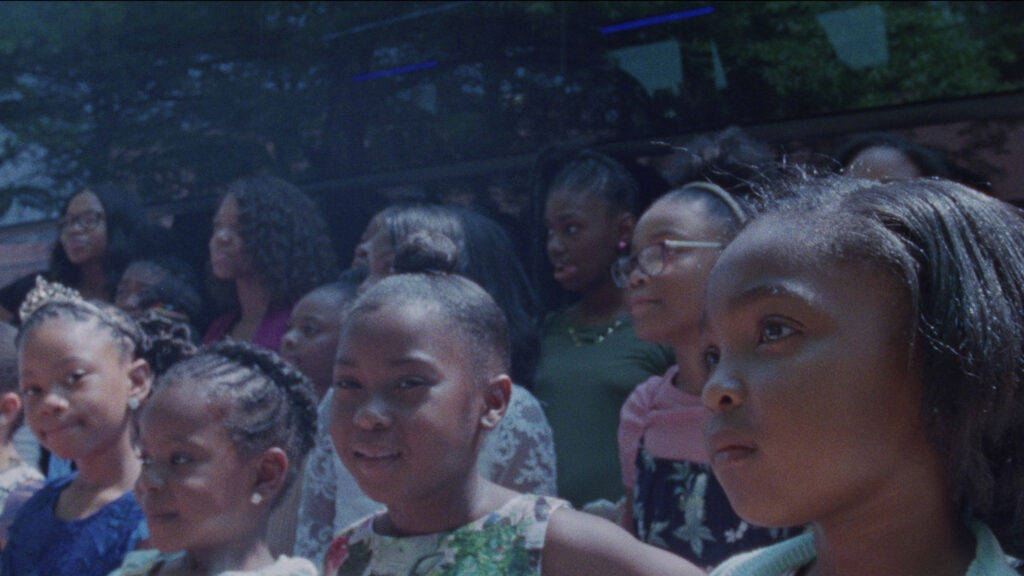
Why is filmmaking important to you? Why is it important to the world?
Patton: “Filmmaking allows for a personal connection with the audience, deeply engaging them with the story and its characters. Creating a powerful documentary means raising awareness and driving real change. This approach effectively communicates the mission and impact of Girls For A Change in the Richmond Metropolitan Area. It has enabled us to form partnerships and share stories for the greater good, contributing to positive transformations.”
Rae: “It’s important to me because I can express myself in a deeper way. The cinematic experience allows you to convey an emotion or an idea that’s more poignant than just saying it out loud. It’s incredibly powerful.”
One thing people don’t know about me is _______.
Patton: “My deep love for musicals, which greatly shapes who I am and my creative outlook. The Wiz is still my favorite, captivating me with its vibrant music, dance, and storytelling and its trailblazing representation of African American culture and history.”
Rae: “I grew up playing the piano, wanting to score my own films.”
What was the last book you read?
Patton: “The last book I read was We Want to Do More Than Survive: Abolitionist Teaching and the Pursuit of Educational Freedom by Bettina L. Love.”
Rae: “The last book I read was The Creative Act: A Way of Being by Rick Rubin.”
Early bird or night owl?
Patton: “I’m both an early riser and a night owl. I enjoy waking up early (around 5–6 a.m.) for some peaceful alone time, exercise, and sending my daughter off to school with a hug and encouraging words. On the other hand, I also enjoy staying up past 11 p.m. watching shows, conducting late-night research, or quietly working. Both routines energize me and fulfill different aspects of my life.”
Rae: “I’m a night owl. Mornings are for my dog, nights are for working.”
Who was the first person you told when you learned you got into the Sundance Film Festival?
Patton: “I was on a field trip with Girls For A Change participants, and I couldn’t contain my excitement. I screamed with joy for the girls who were with me on the bus. It turned our long day on a quiet bus into a lively party bus, even without alcohol.”
Rae: “My brother! He’s a filmmaker and helped me a lot on this film. We both had a cry.”
What’s your favorite film that has come from the Sundance Institute or Festival?
Patton: “Both A Thousand and One and Summer of Soul (…Or, When the Revolution Could Not Be Televised) are outstanding films that have profoundly impacted cinema and beautifully captured aspects of the Black lived experiences. It can be difficult to choose just one favorite when there are so many remarkable films that emerge from Sundance.”
Rae: “Way too many! Grizzly Man, Paris Is Burning, Summer of Soul, Little Miss Sunshine — love the range and heart of the films that are selected.”

